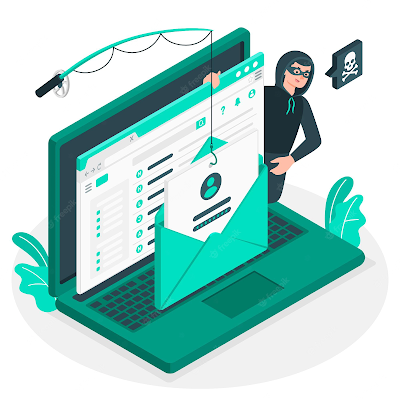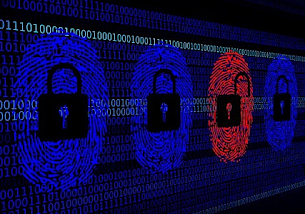GIAC Certifications, established in 1999 by the renowned cybersecurity think tank, the SANS Institute, stands as a beacon of excellence in the realm of information security certifications. Over the years, it has solidified its position as a global leader, crafting some of the most stringent and widely respected standards in the field. With a robust reputation, GIAC Certifications offers a comprehensive array of certifications, each meticulously designed to meet the diverse needs of cybersecurity professionals. This certification body, formerly known as Global Information Assurance Certification, has transformed into a hallmark of credibility and expertise.
The world of information security is dynamic and ever-evolving, demanding professionals to stay ahead of the curve. GIAC Certifications recognizes this need and provides more than 40 specialized certifications, covering an extensive range of domains such as ethical hacking, cyber defense, and penetration testing. These certifications serve as a testament to an individual’s proficiency in specific areas, showcasing their in-depth understanding and practical skills. They are a testament to one's commitment to excellence and continuous learning in the cybersecurity landscape. A GIAC certification is not merely a piece of paper; it is a validation of one's technical prowess and a mark of distinction. It is a pathway to staying updated with the latest trends and techniques in information security. By opting for GIAC certifications, professionals delve into a world of hands-on training, acquiring cutting-edge cybersecurity skills that are directly applicable to real-world scenarios. The certification process is rigorous, ensuring that candidates not only pass exams but truly grasp the nuances of the subject matter, making them adept practitioners in the field.
One of the key strengths of GIAC Certifications lies in its meticulous categorization of certifications into six focused areas. These areas—Offensive Operations, Cyber Defense, Cloud Security, Industrial Control Systems, Management-Legal-Audit, and Digital Forensics-Incident Response—cover a wide spectrum of skills and expertise. Offensive Operations certifications equip individuals with the knowledge to identify and resolve security flaws. Professionals in this category work with various teams, such as purple, exploit, and red development teams, playing a vital role in securing devices, systems, networks, and hardware.On the other front, Cyber Defense certifications empower individuals to prevent and mitigate cyberattacks. In an era where cybersecurity threats are omnipresent, these certifications provide invaluable insights into countering intrusions and safeguarding systems and IT resources. The skills acquired are not just theoretical; they are practical tools that enable professionals to actively defend against threats, making them indispensable assets to any organization.
Cloud Security certifications focus on the protection of data and the design of environments that can detect and resolve threats. With the increasing reliance on cloud infrastructure, these certifications are instrumental in ensuring data integrity, minimizing damage, and expediting remediation when necessary. Professionals certified in Cloud Security become adept at handling cloud-based technologies, crucial for businesses transitioning into the digital age. Industrial Control Systems certifications address the security needs of essential infrastructure. These professionals play a pivotal role in safeguarding power grids, telecommunications, and manufacturing systems, which are the backbone of organizational and industry processes. As the world becomes more interconnected, the importance of securing these systems cannot be overstated. GIAC’s Industrial Control Systems certifications provide specialized training, ensuring that these vital systems remain protected from cyber threats.
The Management-Legal-Audit certifications offered by GIAC focus on leadership and organizational security frameworks. It’s not just about technical skills; it’s about leading security teams effectively and incorporating organizational leadership insights into security practices. Professionals in this category are well-versed in managing and leading security teams, ensuring that the organization’s security posture is robust and resilient.In the realm of Digital Forensics-Incident Response, GIAC certifications enable professionals to identify compromised systems and take decisive actions to employ remediation measures. Digital forensics is akin to being a digital detective, where the ability to trace back digital footprints and understand the nature of cyber incidents is crucial. These certifications provide professionals with the expertise to investigate incidents thoroughly, preserving digital evidence and facilitating a swift response to cyber threats.
One might wonder, what sets GIAC certifications apart from the myriad of options available in the market? The answer lies in the credibility and recognition associated with the GIAC brand. GIAC certifications are not just tokens of knowledge; they are badges of honor. They are a quantifiable measure of one’s understanding of the information security field, demonstrating a high level of competency and skill.
The benefits of obtaining a GIAC certification are multifaceted. Firstly, it offers a structured path for individuals to build specific skills and expertise necessary for excelling in the cybersecurity domain. Unlike generic certifications, GIAC certifications are tailored to meet the demands of the industry, ensuring that certified professionals are well-equipped to handle real-world challenges. This specificity is invaluable in a field where generic knowledge often falls short in addressing the intricacies of modern cyber threats.
Secondly, a GIAC certification is a testament to job readiness. In a competitive job market, where employers seek candidates who can hit the ground running, GIAC certifications provide a clear signal that an individual possesses the requisite skills to excel in their role. Employers can be confident that GIAC-certified professionals are not just academically inclined but also have practical, hands-on experience, making them valuable assets to any organization.Furthermore, a GIAC certification is evidence of training and technical skills that align with an individual’s career interests. Information security is a vast field, with numerous specializations and niches. By obtaining a GIAC certification, professionals can demonstrate their expertise in a specific area, be it penetration testing, incident response, or cloud security. This specialization adds depth to their skill set, making them highly sought after in the job market. Additionally, a GIAC certification illustrates an individual’s understanding of the current industry standards. The world of cybersecurity is constantly evolving, with new threats emerging regularly. GIAC certifications are updated regularly to reflect the latest trends, ensuring that certified professionals are up-to-date with the most recent developments. This current knowledge is invaluable, enabling professionals to devise proactive strategies to counter emerging threats effectively.
From an employer’s perspective, hiring GIAC-certified professionals brings assurance. It is a mark of quality, indicating that the individual has undergone rigorous training and assessment, meeting stringent industry standards. In an era where data breaches and cyber-attacks are rampant, organizations cannot afford to compromise on their cybersecurity measures. Hiring GIAC-certified professionals is a strategic investment, ensuring that the organization’s digital assets are in capable hands.
GIAC certifications also play a pivotal role in enhancing the credibility of organizations. Businesses that invest in training their employees and encouraging them to obtain GIAC certifications demonstrate a commitment to cybersecurity excellence. This commitment is not lost on clients and partners, instilling confidence in the organization’s ability to safeguard sensitive information. In a world where data privacy is paramount, this confidence can be a game-changer, differentiating a business from its competitors.However, it’s important to note that obtaining a GIAC certification is not a walk in the park. It demands dedication, time, and financial investment. The certification process involves rigorous study, hands-on training, and the successful completion of challenging exams. Prospective candidates must be prepared to invest significant hours into understanding complex concepts, practicing skills, and mastering various tools and techniques. This investment is not just monetary; it is an investment in one’s future, paving the way for a fulfilling and rewarding career in cybersecurity.
The financial aspect of GIAC certifications should also be considered. While the cost varies based on the certification level and type of exam, it is a significant investment. The basic GIAC Certification exam, for instance, comes with a price tag of $849 per attempt. Additionally, there are costs associated with renewals, which are essential to maintain the certification’s validity. Renewals, occurring every four years, come with a price of $469. This financial commitment underscores the seriousness and value associated with GIAC certifications.
One might question whether GIAC certification is the right choice, given the investment of time and money. The answer lies in understanding one’s career goals and aspirations. If an individual is serious about pursuing a career in cybersecurity, especially in specialized areas like ethical hacking, penetration testing, or incident response, a GIAC certification is not just beneficial; it is essential. GIAC certifications open doors to a world of opportunities, allowing professionals to explore diverse roles and industries. From working with government agencies to collaborating with private enterprises, certified professionals are in high demand, and their expertise is valued immensely.
Another aspect that makes GIAC certifications highly attractive is the extensive range of certifications available. Unlike other certification bodies, GIAC caters to a wide array of job-focused tasks. Whether one is interested in offensive operations, defensive strategies, cloud security, or industrial control systems, there is a GIAC certification tailored to meet those specific needs. This diversity ensures that individuals can find certifications that align perfectly with their career interests and aspirations. Additionally, GIAC certifications provide access to a large community of cybersecurity professionals. This community is not just a network; it is a support system. In the ever-changing landscape of cybersecurity, having a community of peers and experts to lean on is invaluable. Professionals can share knowledge, exchange ideas, and collaborate on projects, enhancing their learning and growth. This sense of belonging to a community that shares common goals and challenges is empowering, making the journey of certification more enriching and fulfilling.
In conclusion, GIAC Certifications stand as a gold standard in the realm of information security. They are not just certifications; they are pathways to excellence. By opting for GIAC certifications, professionals invest in their future, equipping themselves with the skills and knowledge necessary to thrive in the dynamic field of cybersecurity. These certifications are not just about passing exams; they are about mastering the art and science of securing digital assets, protecting organizations from cyber threats, and ensuring a secure digital future.Yes, GIAC certifications demand dedication, time, and financial investment, but they offer something far more valuable in return: a ticket to a world of endless possibilities. They are the keys to unlocking doors to high-paying, fulfilling careers, where professionals play a crucial role in shaping the digital landscape. In an era where cybersecurity is not just a concern but a necessity, GIAC-certified professionals are not just employees; they are guardians, protectors of digital realms, and architects of secure futures. So, the question is not whether GIAC certification is right for you; the question is, can you afford to miss this transformative opportunity? The answer, in the grand scheme of your career, is priceless.






